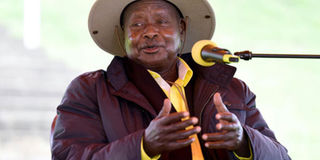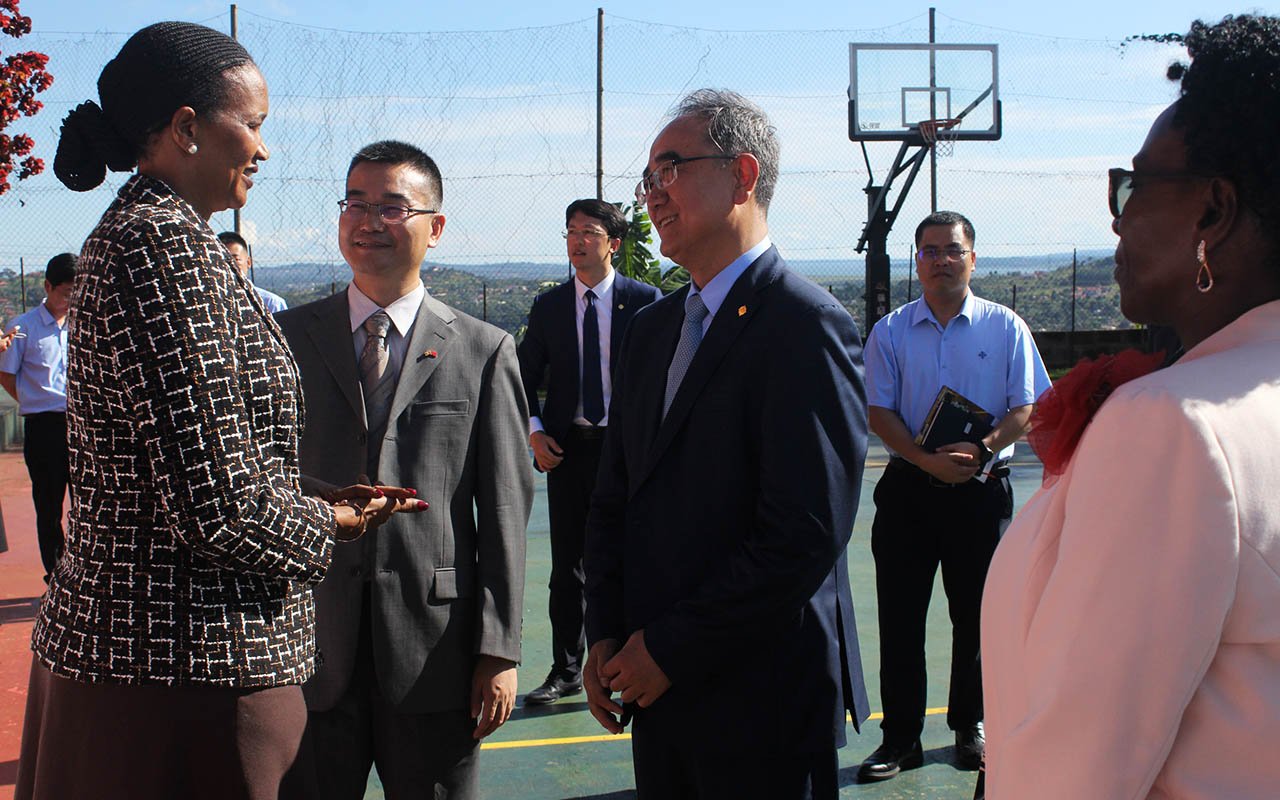Museveni a threat to Uganda future - US

President Museveni
KABAROLE- The United States’ Permanent Representative to the UN, Ms Samantha Power, on Monday removed diplomatic gloves to launch a blistering attack on Great Lakes regional leaders, singling out President Museveni as a risk to Uganda’s future stability due to his government’s worsening repressive behaviour.
Kampala, however, scoffed at what it said was diplomatic sabre-rattling with a spokesperson saying government actions to contain the Opposition were justified to “preserve rule of law for many”.
Col Shaban Bantariza, the deputy executive director of Uganda Media Centre, a government communication clearing house, said they “get disenchanted by groups of people who only talk about consequences while ignoring the causes.”
Speaking on Monday to the 15-member UN Security Council, the world body’s most powerful organ, Amb Power exalted Uganda’s “critical” contribution to regional peace and its generous refuge policy, playing host to half a million refugees, before criticising its democratic reversals and increasing repression.
The UN Security Council was discussing Great Lakes region.
“President Museveni’s actions contravene the rule of law and jeopardise Uganda’s democratic progress, threatening Uganda’s future stability and prosperity,” she said, citing arbitrary detention of Opposition leaders and supporters, harassment of journalists and gagging of the civil society before and after last month’s presidential vote.
The incumbent, in power for 30 years, was declared winner of the February 18 elections with 60.7 percent, but his closest rival and Forum for Democratic Change party flag bearer Kizza Besigye, rejected the results as “sham”.
Former prime minister Amama Mbabazi, who ran as an Independent and came a distant third, has challenged the outcome, citing massive fraud and voter bribery. The Supreme Court is expected to rule on the presidential election petition at the end of this month.
The police placed Dr Besigye under unofficial house arrest on voting day more than a month ago, and his attempt to regain his freedom through the courts encountered a headwind after a higher court recalled his case file on the eve of a ruling on the matter.
His mistreatment, coupled with arrests of Opposition supporters in the countryside and intensified military patrols, has placed the country on tenterhooks that human rights activists, clergy and a coalition of elder statesmen have condemned.
Uganda is America’s strongest military ally in the Great Lakes, a perennial security fault line, and Amb Power’s unprecedented open rebuke likely signals that Washington is not afraid anymore to re-set relations with the country’s leader it midwifed.
The US said Ugandans “deserved better” hours after President Museveni was announced winner, citing irregularities similar to those the European Union and Commonwealth observers raised.
African Union and regional observers, usually first responders to problems on the continent, however, gave a clean bill of health to last month’s election even while acknowledging some logistical hiccups.
In yesterday’s interview, Col Bantariza questioned why the US has repeatedly ignored Uganda government’s explanation that Dr Besigye’s movement is being restricted because of his declared intention to cause civil disobedience through continuing a campaign of defiance.
“Would the US government allow anyone with such purpose to roam around freely? Or, are they saying we let him cause the civil disobedience and sacrifice the rule of law?” he said.
He added: “Institutions generally manifest human weakness; just as Uganda is not perfect, so is the US. They [US], for example, is still having issues of inequality in their country, their Republican presidential candidate Donald Trump has been campaigning on sectarian sentiments, is that a perfect society?”
That Uganda and the US are reading from different pages on such a polarising political matter is not unusual, but the bellicose tone is uncommon. According to Col Banatariza, officials on either side make up and discuss “different issues” in closed-door meetings as required by diplomatic decorum.
At the Monday UN Security Council session in New York, attended by Secretary General Ban Ki-moon and representatives of other governments and international bodies, Amb Power tied the presidents of Uganda, Rwanda, Burundi and the Democratic Republic of Congo as common burdens for their countries’ future.
The leaders, she said, have diminished democratic credentials, suffocate civil liberties, violate their country’s laws and citizens’ rights with impunity while manipulating the laws to keep in power.




